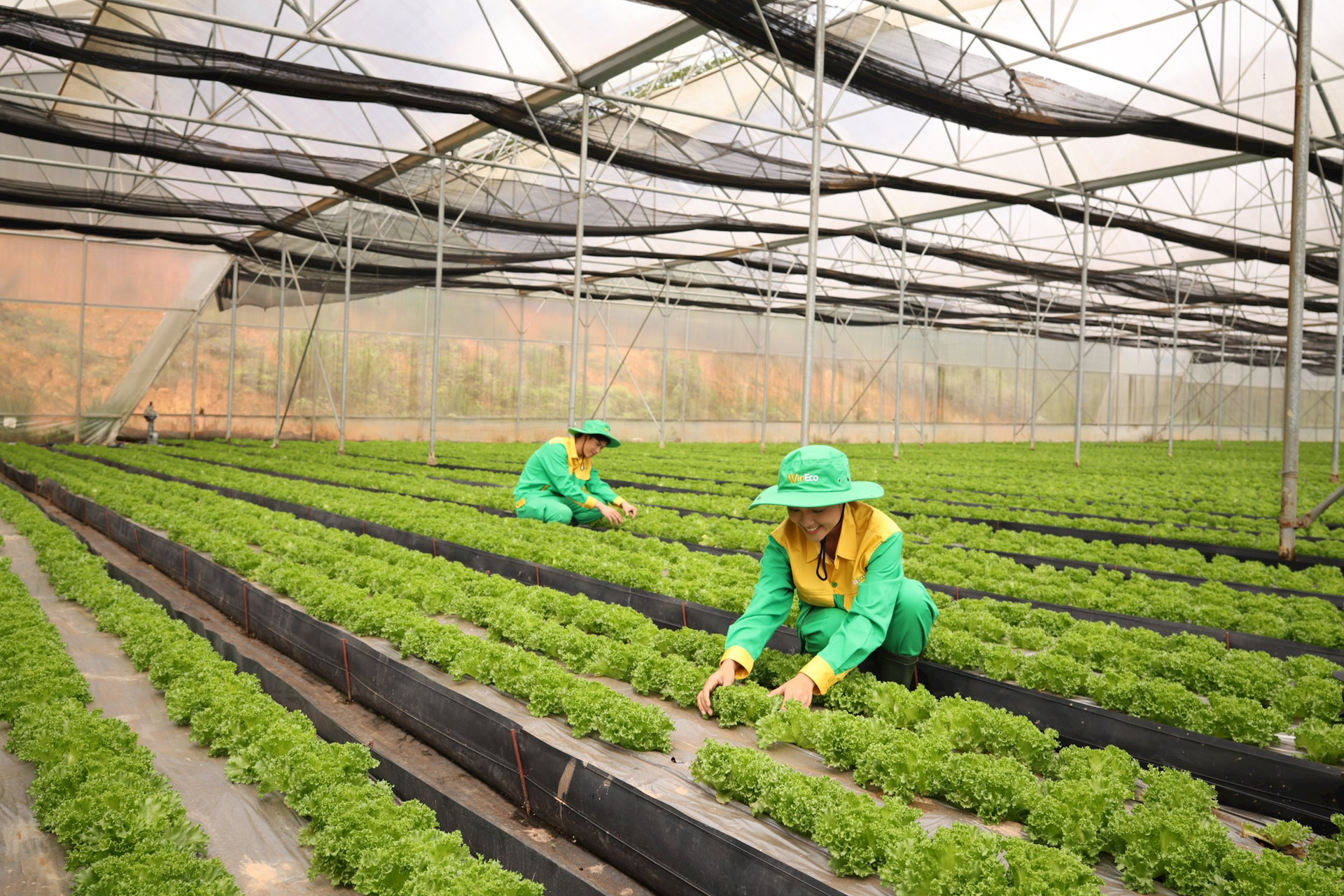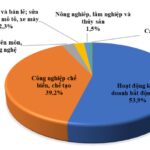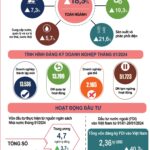
Private Enterprises Contribute Nearly 45% to GDP, ⅓ to State Budget, and Employ 85% of the Workforce
According to the General Statistics Office of Vietnam, the private sector contributes nearly 45% to the country’s GDP, accounts for over 40% of total social investment, and employs 85% of the national workforce. This sector also contributes 35% of the total import turnover and 25% of the total export turnover.
Dr. Le Xuan Nghia asserts that “the development of private enterprises follows the rules of the market economy. As private economic groups continue to thrive, their contributions to GDP and the financial system will become increasingly significant in the future.”
Private enterprises are a primary source of employment for Vietnamese workers. By creating millions of jobs, they help reduce unemployment rates and improve people’s living standards. According to the Ministry of Labour, Invalids, and Social Affairs, private enterprises generated approximately 3 million new jobs annually between 2015 and 2020.
Moreover, these enterprises contribute to enhancing workers’ skills and expertise through training and development programs. Notably, private enterprises have invested around $2 billion annually in training and skill enhancement programs for their employees.
Private enterprises also play a crucial role in ensuring social security. They actively engage in charitable activities, community support, and contributions to social security funds. According to the Vietnam Chamber of Commerce and Industry (VCCI), in 2020, private enterprises donated more than $100 million to charitable and social security causes.
In terms of contributions to the state budget, large budget-contributing companies used to be mostly state-owned enterprises undergoing equitization. However, in the last 15 years, Vietnam has witnessed the emergence and strong economic contributions of numerous large-scale joint-stock companies from the private sector.
“In the past three years alone, the private sector’s contributions to the state budget have been significant,” says Dr. Dinh The Hien. “In Vietnam, small and medium-sized enterprises (SMEs) account for a large proportion in terms of quantity and labor force. However, this group is estimated to contribute only about 30% of tax revenue, while large enterprises contribute up to 70%. This is not unusual, as major economies like Japan, South Korea, and the United States exhibit similar patterns.”
Private Sector Plays a Vital Role in Driving Sustainable Economic Development

Recognizing their important role, private enterprises are keenly aware of their responsibility in the country’s development. A clear trend in the global landscape is the shift towards sustainable development and ethical business practices.
In line with this global trend, many countries, including Vietnam, have taken proactive measures to adopt targets related to ESG (Environmental, Social, and Governance) criteria. The latest PwC survey on Vietnamese businesses’ readiness for ESG in 2022-2023 revealed that private enterprises are leading the way in sustainable development.
With a forward-thinking approach, private enterprises are not only committed to local economic development but also actively contribute to social security. Many multi-industry enterprises with nationwide branch networks have made a strong impression on Vietnam’s economy, especially in key sectors such as retail.
For instance, Masan Group contributed nearly VND 32 billion to social welfare across the country in 2023, more than doubling its contribution from the previous year. Notably, its subsidiaries, the Nui Pao Mineral Exploitation and Processing Company, and Vonfram Masan Company in Thai Nguyen province, contribute over VND 1,000 billion to the state budget annually, $1 million to investment, economic development, culture, and social activities in Thai Nguyen province, and provide employment opportunities for thousands of local workers. Masan has become synonymous with the province’s strengths, driving its economic growth.

Similarly, DOJI, with 50 branches, nearly 200 centers, and over 400 agents nationwide, has created more than 3,000 jobs and made substantial contributions to the state budget. With its superior human resource policies and attractive benefits, DOJI has been committed to accompanying its employees on their journey to professional success. The group, operating in multiple fields, has been recognized for the third time as one of the “Best Companies to Work for in Asia” on August 8, 2024.
Another prominent player in the retail industry, PNJ, has also demonstrated its significant role in economic development. Ranked in the Top 10 for eight consecutive years and leading the Top 10 enterprises in the field of trade and services in the 100 Sustainable Businesses, PNJ has provided employment for over 7,000 professionals with exceptional expertise. In the last three years alone, the company has contributed VND 4,500 billion to the state budget and supported hundreds of thousands of people in difficult situations.

It’s not just retail businesses that have made significant contributions to Vietnam’s economy; industries such as banking, real estate, steel, and technology have also played a major role. In terms of state budget contributions, the banking sector made the largest contribution in 2023, with 100 private banks contributing a total of VND 42,000 billion. This was followed by the real estate group, which contributed more than VND 37,000 billion. The food and beverage industry is also noteworthy, contributing over VND 22,000 billion.
PRIVATE 100 – Top Private Enterprises Contributing to the State Budget in Vietnam is a list compiled by CafeF based on publicly available information or verifiable data. It reflects the actual budget contributions of enterprises, including taxes, fees, and other mandatory payments. Enterprises with budget contributions of at least VND 100 billion in the latest fiscal year are eligible for inclusion in the list. Some notable enterprises in the 2024 list, reflecting their contributions in the 2023 fiscal year, include ACB, DOJI, HDBank, LPBank, Masan Group, MoMo, OCB, PNJ, SHB, SSI, Techcombank, TPBank, Hoa Phat Group, Tan A Dai Thanh, Vingroup, VNG, VPBank, VIB, Vietbank, and VPS (listed in alphabetical order).

Vietnam’s Economic Landscape in the First Month of 2024
In January 2024, the country witnessed the reactivation of nearly 13.8 thousand businesses, which is 2.2 times higher than December 2023 and represents an 8.4% decrease compared to the same period in 2023. This resulted in a total of over 27.3 thousand newly established and reactivated businesses in January 2024, marking a 5.5% increase from the previous year.













































